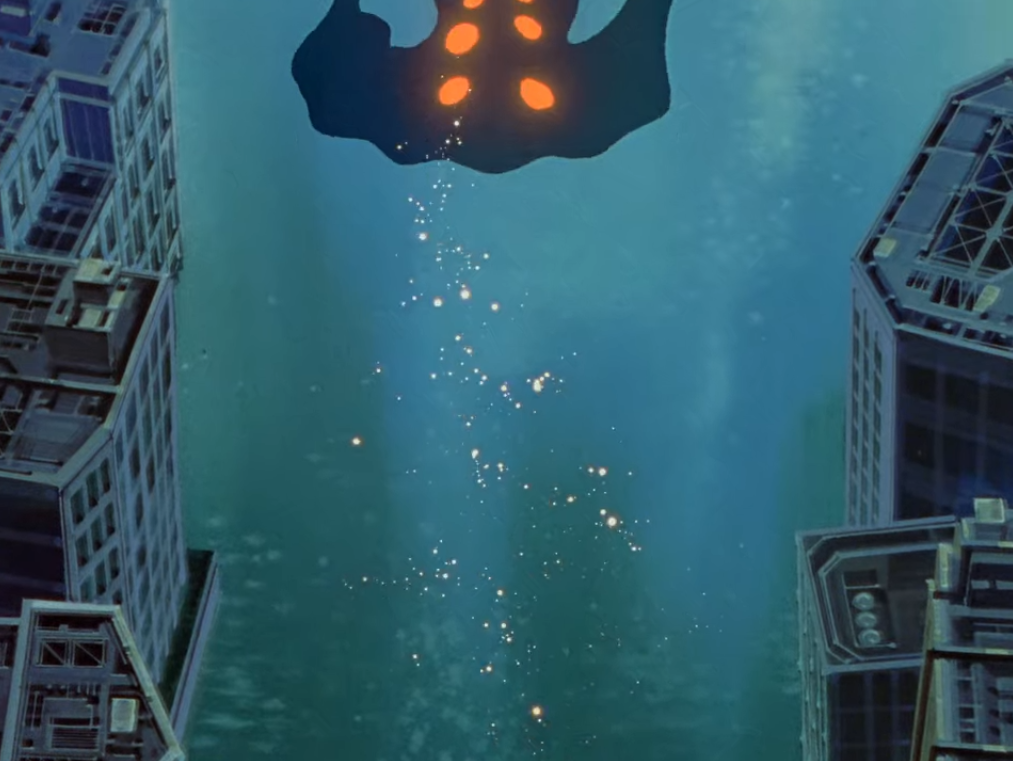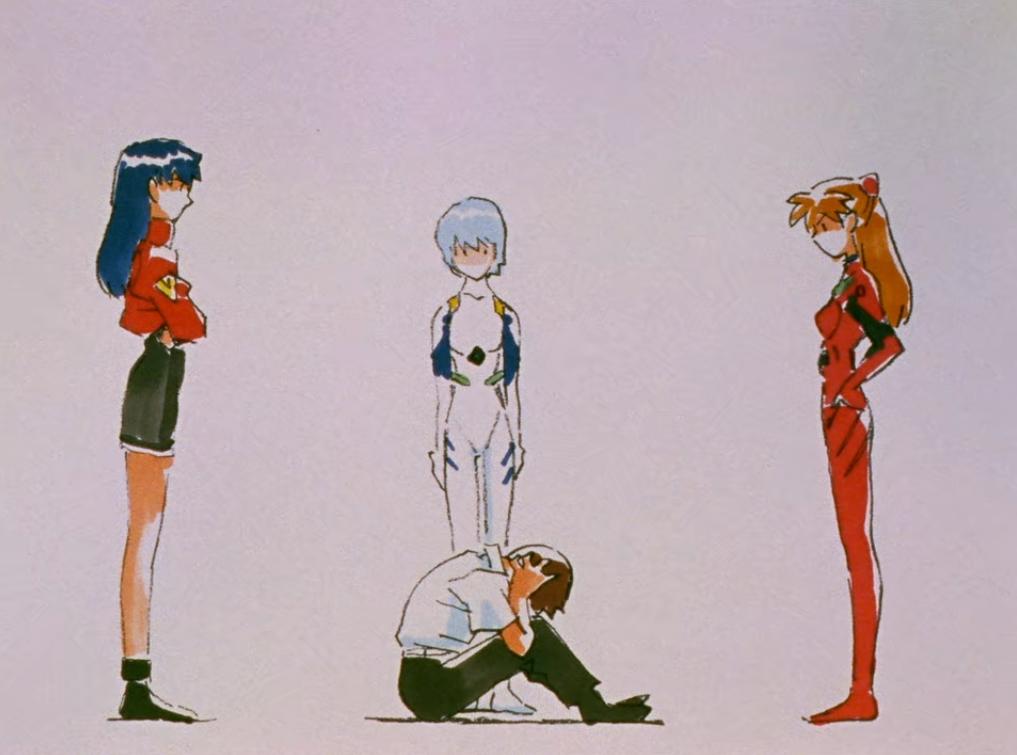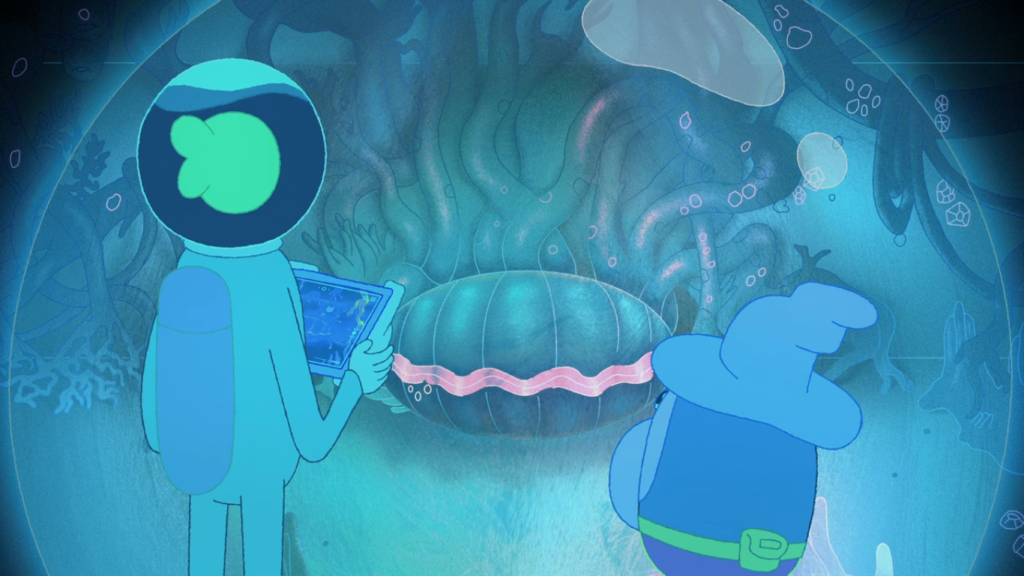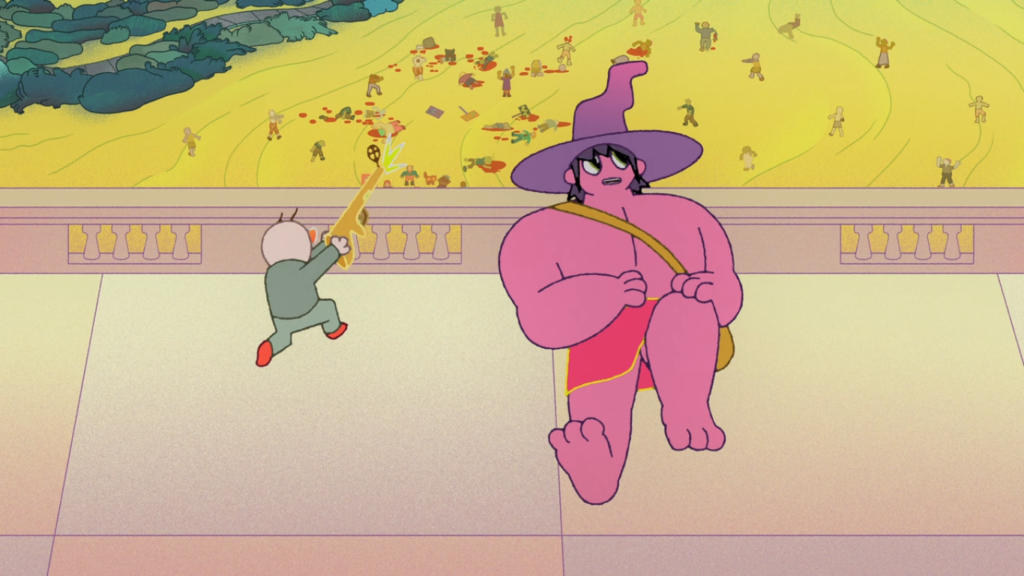When I first started writing this piece, it was genuinely just a review for a TV show. However, The Midnight Gospel is unlike anything I’ve really seen before, so I think it warranted more than just a standard review. This, more than any other review, is my own personal opinion, so take it with a grain of salt. The Midnight Gospel is a show both based on and deserving of conversation. We need to talk more about how we connect personally to art – after all, isn’t that the point of it?
There is lots of art that I have connected with personally over the years – so much so that it would take me a million words to discuss it all. So, in the interests of keeping things focused, I’ll discuss just one other piece of art that I have connected with. It’s another television show – another animation, even – and it has controversial elements in the same vein as The Midnight Gospel. In fact, this show (or at least two episodes of it) were the first thing that came to mind when I started watching The Midnight Gospel. The show is Neon Genesis Evangelion, and the episodes I was thinking of were the two that made up that hotly debated finale.
I will always remember the first time I watched Neon Genesis Evangelion. That first episode, with the establishing shots of the ruined city, preceded by that iconic introduction. The first time I saw an Angel. The first time I saw an Eva. The first time I heard Shinji’s scream (like nails down a chalkboard).

When I initially started watching the series, I didn’t really know what it was going to be like. I knew it was well-regarded and considered something akin to “fundamental” viewing for anyone interested in anime, but I didn’t have any opinion of my own about it. Within seconds, however, I was drawn in by the beauty of the animation and within minutes I was drawn in by the story. I’ve been obsessed with the series ever since, and consider it not only one of my favourite animes, but one of my favourite television shows in general.
Beyond the art style, beyond the story, the fundamental reason why I love Evangelion is because it gives me the opportunity to experience something that increases my understanding of and perspectives about the world. Watching Evangelion is often a painful and confusing experience, but I relish that. I know it may sound strange, but for me it’s what makes the show work.
The last two episodes of the television series are controversial but I have always been a staunch supporter of them and the message they contain. Watching these episodes is a surreal experience, and it is also one that is very personal. The message that you take away from it will likely be based on your own thoughts, feelings and experiences at the time. The first time I watched it, I thought more about the literal interpretation of what was going on – (spoiler warning): Shinji was absorbed into the kind of “hive-mind” of the Human Instrumentality Project and was closer to achieving a sense of happiness. Good for him. The end.

However, the second time I watched those final two episodes, I thought more about what my personal reaction to watching them was. At the time I was going through quite a big personal crisis (much like Shinji I was scared to face what was in front of me but also ashamed of “running away”). A lot of what Shinji and the other characters said in their monologues applied to me. I had a much more personal reaction this time around because my circumstances and way of thinking had changed. This time around I connected with these episodes much more. There was a strong negative reaction against these episodes (so much so that an alternative ending was detailed in The End of Evangelion). However, I have always admired them due to the creativity of their art style, the way they are presented and the messages they contain and how it is possible to connect with those messages. The latter is the main reason why they are so engaging to me.
The reason why I’ve mentioned Evangelion is because I believe that The Midnight Gospel is a show needing to be viewed in a similar way. It’s a show that will only be engaging if you can have a personal reaction to its content. Being completely honest, I found some episodes boring because I had no interest in the themes discussed. Other episodes were more intriguing to me because I was able to connect with them and learn from their messages.

The show, created by Pendleton Ward (famous for creating Adventure Time) and Duncan Trussel (a stand-up comedian most known for his podcast The Duncan Trussel Family Hour) is hard to categorise. It’s part podcast, part adult animation. It’s definitely unique. The basic premise of the show is that the protagonist, Clancy (voiced by Trussel), uses a simulator to visit various worlds in order to find beings to interview for his podcast (known as a “spacecast”). Each episode centers on a different, generally philosophical, theme. In every episode each being that Clancy interviews is someone that Trussel interviewed for his own podcast in real life. Therefore, most of the character dialogue is therefore taken from these podcast episodes, and a kind of “framing narrative” occurs in the background as these characters converse.
The framing narratives of each episode can be a help and a hindrance. For example, the framing narrative of episode one, which is all about the two main characters of the episode enduring a zombie apocalypse, I actually found quite distracting. Whatever message the episode had for me was buried in the action going on in the background. However, other episodes, such as the final one, have a simpler but more effective framing narrative that I think help the theme of the episode shine and made it easier to connect with.

As I mentioned before, much like Evangelion, the art style of the show is what really drew me in at first. It’s gorgeously animated, and the art style creates an interesting juxtaposition as the animation is so bright and colourful and often innocent-looking, but the content of the show is so adult. The character and world designs are so interesting, as is the general world-building of the show – I’d definitely like to spend more time in this universe and find out more about how it works.
Overall, turning a podcast like that into a television series is not something I ever thought would be possible, and in some respects I’m not sure if the show is entirely successful. It’s definitely not something that will be for everyone. I watched it in one single session on a Saturday afternoon (to be fair, there are only eight episodes and each is about 25 minutes) and at first I didn’t get it. It took me a few episodes to warm to it simply because not all of the episodes resonated with me. For example, the first episode is all about drug use. Now, being someone who has never done anything more illicit than enjoy a nice glass of wine on a Friday night whilst re-watching It’s Always Sunny for the tenth time, I have no connection to this story. However, the fourth episode, which is about forgiveness and the concept of meditating to listen, really resonated with me. It’s something I’d be interested in finding out more about.
And that final point, I think (at least to me), is what The Midnight Gospel is all about. It’s finding something interesting in it to connect to, a message to take away from viewing it. It’s a show that is most engaging if you can connect with it personally, just like those final two episodes of Evangelion.
Overall, I would recommend The Midnight Gospel. Like me, you probably won’t connect with every episode. However, Clancy is a likeable protagonist, there are some genuinely funny moments and the concept of the show is interesting enough to keep watching. Hopefully you will be able to connect to it in some way, even if it’s just one episode. And that’s the whole point of art, isn’t it – the connections that we make with it.
BEST BITS:
– The animation.
– Great jokes. I actually laughed out loud several times.
– Some really meaningful content.
WORST BITS:
– Whichever episodes you don’t connect with will likely be uninteresting.
FINAL RATING: 7/10
